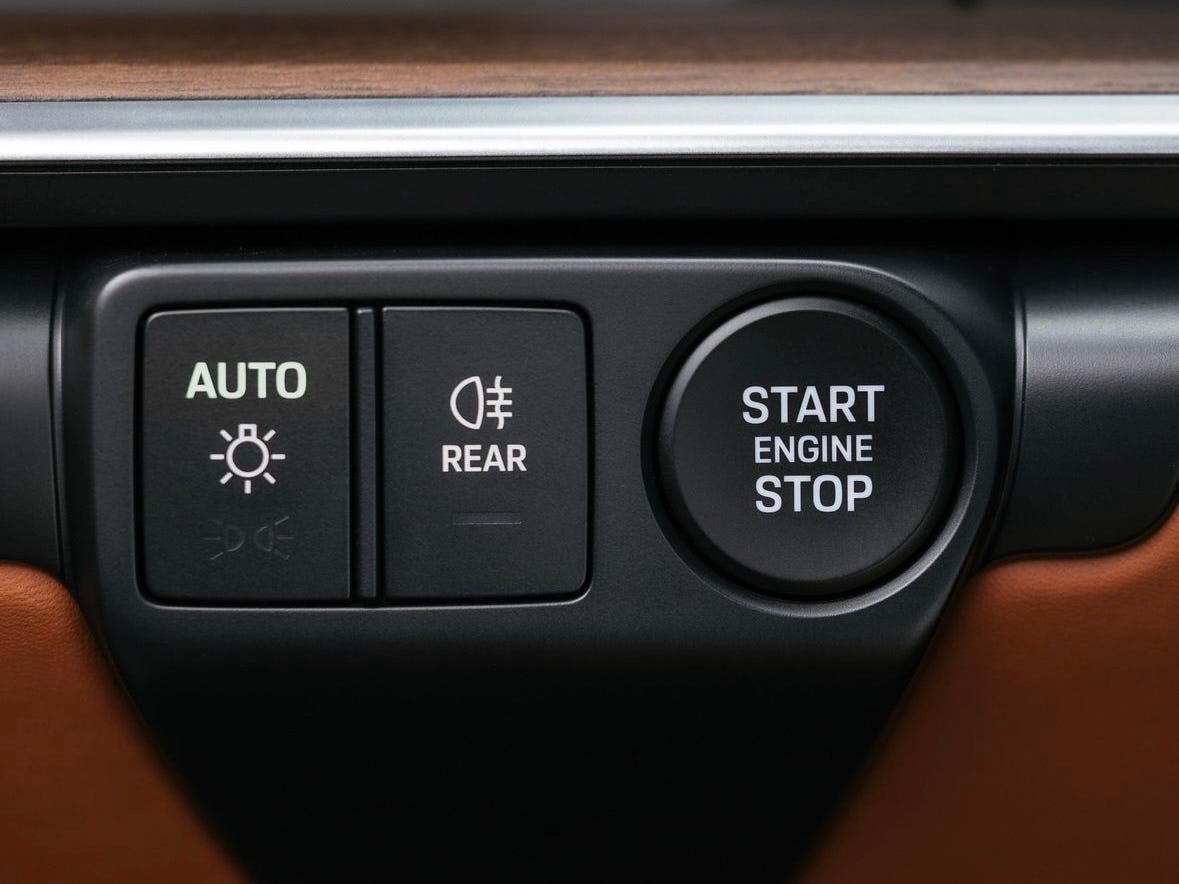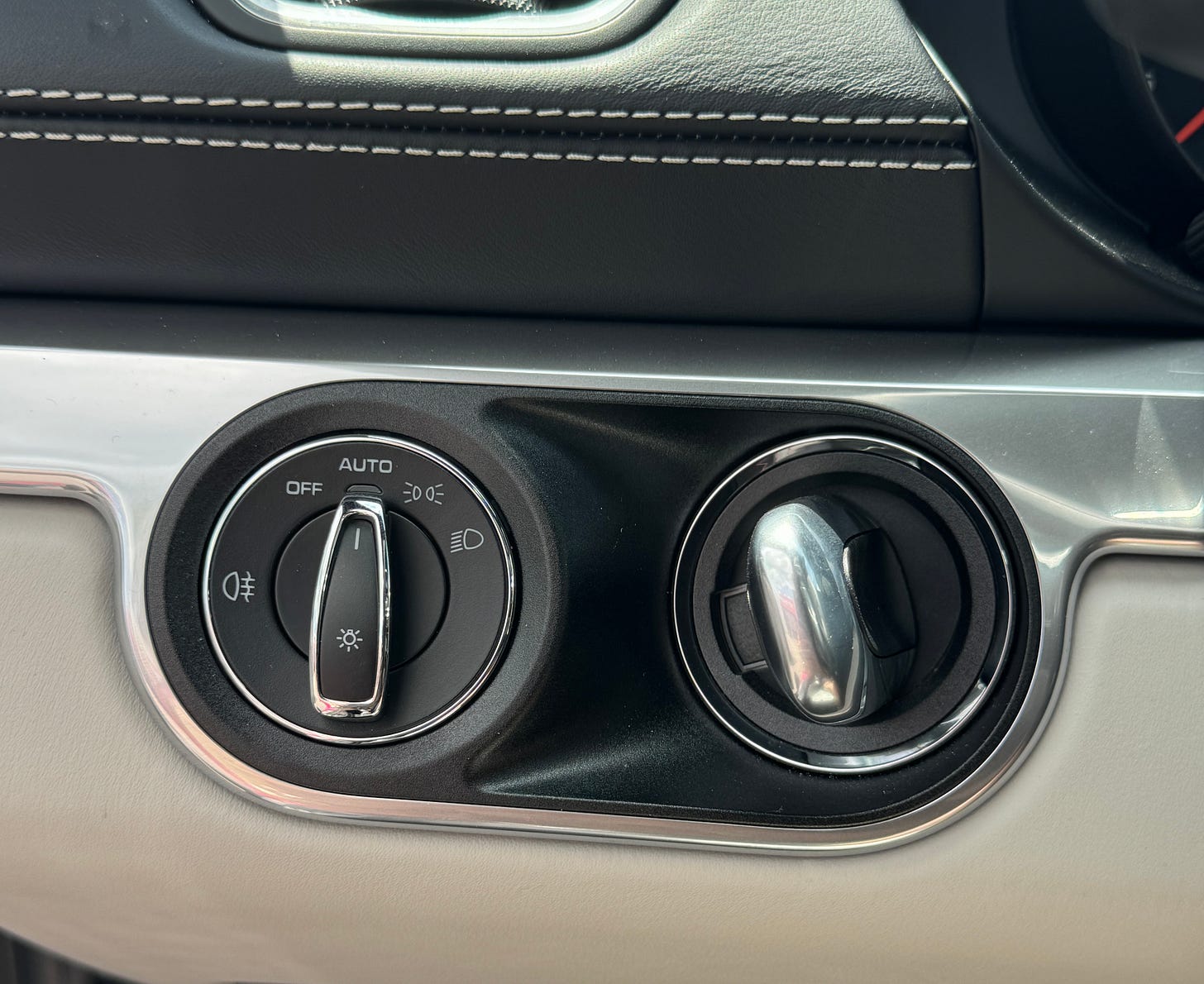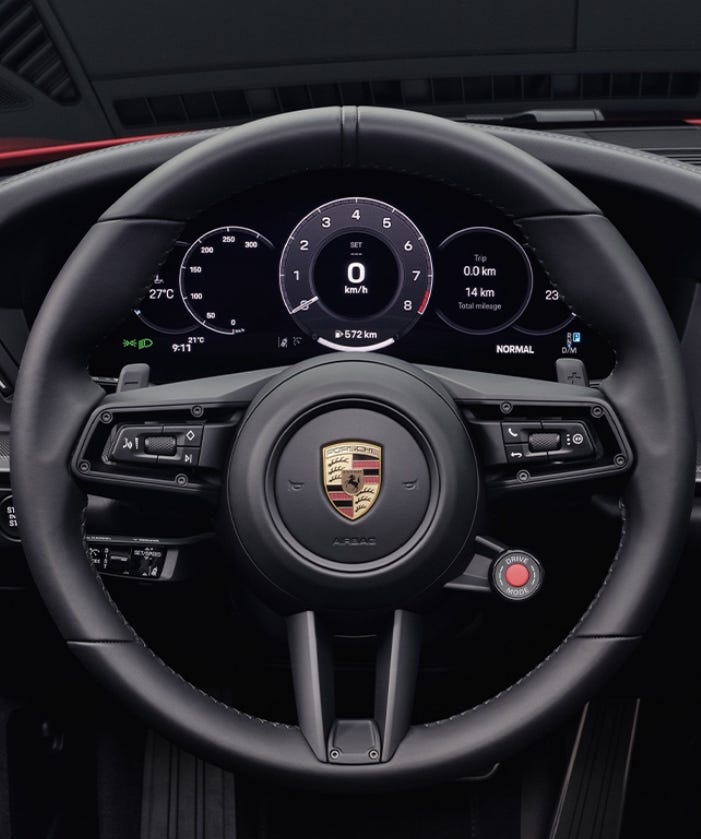When Progress Betrays Substance
Porsche goes all in on the future at the expense of the present.
Big week on the internet was it not? One story dominated all others though. It practically took over my Instagram feed, in addition to being the leading headline on many of the websites I regularly visit the most. Yes, Porsche certainly caused a stir with the arrival of the first 911 to feature a hybrid powertrain. What, did you think I was referring to something else? Anyhow, as I summarized on Instagram the other day, focusing on the hybridization of the updated 911 isn’t the story here, nor is the omission of a manual transmission at the outset. In fact I’ve come to the conclusion that the two changes to the interior that have drawn my ire, as well as that of many of my peers, are simply indicative of a much larger and more bothersome issue, not only at Porsche but around the auto industry in general.
The removal of the last vestiges of 911 interiors of yore, a large analog tachometer at the center of the gauge cluster and an ignition to the left of the steering wheel shouldn’t be this big of a deal, even to someone as passionate about automobiles as I am. So why does the change to a fully digital gauge cluster and a simple push-to-start button piss me off so much? Because it feels like a betrayal. I take it as Porsche making a definitive statement that they’re moving on from catering to buyers who care about things like analog gauges, keys and manual transmissions. I’m not as bothered by the latter because I’m very confident we’ve not seen the last of a row-your-own gearbox in the iconic sports car, but even if we had, wouldn’t be the end of the world. The 911 has grown into a proper, albeit very, very capable, sports-GT car since the introduction of the 991 generation in 2012. It’s grown too big to be defined as a pure sports car, too comfortable as well. Nothing wrong with that, the 718 twins have filled that niche quite nicely. Having just enjoyed a week with a 992 generation (2019-Current) 911 Carrera T equipped with a manual transmission I can honestly say while I still prefer driving stick, in the modern 911 it doesn’t make or break the experience. The same could be said of the twist-to-start “dummy key” that started as an option over a decade ago and later became standard on the 911 and other Porsche models. Enthusiasts like myself decried it when it debuted, but eventually got used to it. Its appearance reflected its name, but turning it offered a satisfying homage to the bygone ritual of inserting a key into an ignition.
The same can be said of the move from one cleanly integrated digital gauge in the otherwise analog cluster, to one analog gauge flanked by reconfigurable screens. Not ideal, but connective tissue to the 911s of the past remained. What strikes me as being different between those changes and the latest however is that they came across as thoughtful evolutions of Porsche DNA. These latest changes read as the start of something new, something devoid of character. Swap out the stock steering wheel with the iconic Porsche crest for a generic unit and ask someone what kind of car the interior they’re looking at belongs to. Unless they’re a die-hard enthusiast, they won’t have a clue. At best they’d guess it was a Volkswagen Auto Group product based on shared plastics and some design language. At worst, they’d guess it was something new from Detroit or Japan. Bad for Porsche, good for GM.
None of this would be an issue if I was talking about some new run of the mill vehicle. However, this is the Porsche 911 we’re talking about here. An ICON. It doesn’t bug me that these updates come from the latest iterations of the Cayenne and Panamera, which in turn were reworked to bring them in line with the interior of Porsche’s first EV, the Taycan. As wonderful as those vehicles are, especially the high performance variants, ultimately they’re volume models. The Cayenne was born out of necessity, as was the Panamera and subsequently the Macan. They exist to support the further development of the 911, Boxster and Cayman. You know, the sports cars that Porsche, historically a sports car company, is known for. The purpose of volume models is to serve, not to lead. Yet here we are with elements of an EV trickling up into the most iconic product in the brand portfolio. It seems the patients are running the nuthouse.
Ultimately I have to believe that Porsche, along with the other German automakers and indeed many more around the world, have made a miscalculation. I don’t yet want to venture into the territory of them reading the room correctly. When it comes to their iconic vehicles, these brands would do well to remember what makes them special to the average consumer, their heritage. Performance and quality haven’t been the difference makers for some time now. New vehicles in 2024 are pretty much “good” across the board, while the amount of “great” and even “exceptional” cars continues to grow thanks to shared platforms and practices. Automakers have long leaned on past accolades in marketing and advertising, but putting heritage front and center as the driver to draw the general public in is more recent strategy. Prior to the explosion in values of air-cooled Porsches a little over a decade ago(a related story deserving of its own newsletter) any acknowledgement by Porsche corporate, beyond a cursory admission that they existed, was the gospel. The acceptance of integrating the celebration of past models and the community that loves them into marketing new vehicles is relatively recent. I have to imagine that’s due to the nature of German engineering, which is always looking ahead, always progressing, always striving to lead the way. Accepting that perhaps a peak was already reached and perhaps that maintaining success rather than seeking continuous growth, is a very un-German thing, especially at a for-profit corporation. That last part is especially important to keep in mind. As I frequently have to remind myself and others with the same affliction of being obsessed with cars, the automakers are not your friend, they don’t exist to make you happy, they exist to make a profit. Well, maybe with the exception of Lotus. And McLaren. Probably Aston Martin too. They’re not great at the business part. Quite good at the happiness part.
Taking all of the above into consideration, I still can’t fault Porsche for their betrayal. I won’t ever like it and they sure as shit won’t get my money for a 992.2 911 (barring some optional “Heritage Pack” which replaces screens with analog gauges and physical buttons for a comical sum) but that’s okay because as they’ve made it abundantly clear, they don’t need me as a new customer. I’ll always be a brand evangelist, same as many of my peers who also don’t care for these changes. I’ll more likely than not own primarily Porsches the rest of my life, as I can’t think of another automaker that offers multiple vehicles, across multiple decades that are of great interest to me. Porsche is busy focusing on reeling in the younger members of my generation who still think screens in cars are fancy and push-to-start buttons are a major convenience. You know, the “I’ll just take it to the dealer for service” crowd. Then there’s the generation below, who, for the life of me I cannot understand why Porsche cares about catering to at all. Apparently they aren’t interested in driving(because Uber) aren’t interested in attracting mates(because porn) and can’t afford anything at all(except for a degree in theoretical gender studies) but maybe one day they’ll lease a Macan EV in order to help save the planet? I don’t even know where to begin with understanding Gen-Z, but I’m sure Porsche has spent more than adequate amounts of money to do just that. Whether whoever they’re paying to figure out the future of the brand understands a damn thing about what got them to here remains to be seen, but I’m not optimistic. Chasing a new type of buyer is how we’ve ended up with a 911 interior design that is now apparently easier than ever to use and understand, it just has zero personality. Brings it right in line with the majority of other vehicles on the market ranging from the Chevy Bolt to the Mercedes-Maybach EQE SUV. The Porsche 911 is now for everyone, it’s just not for me.






